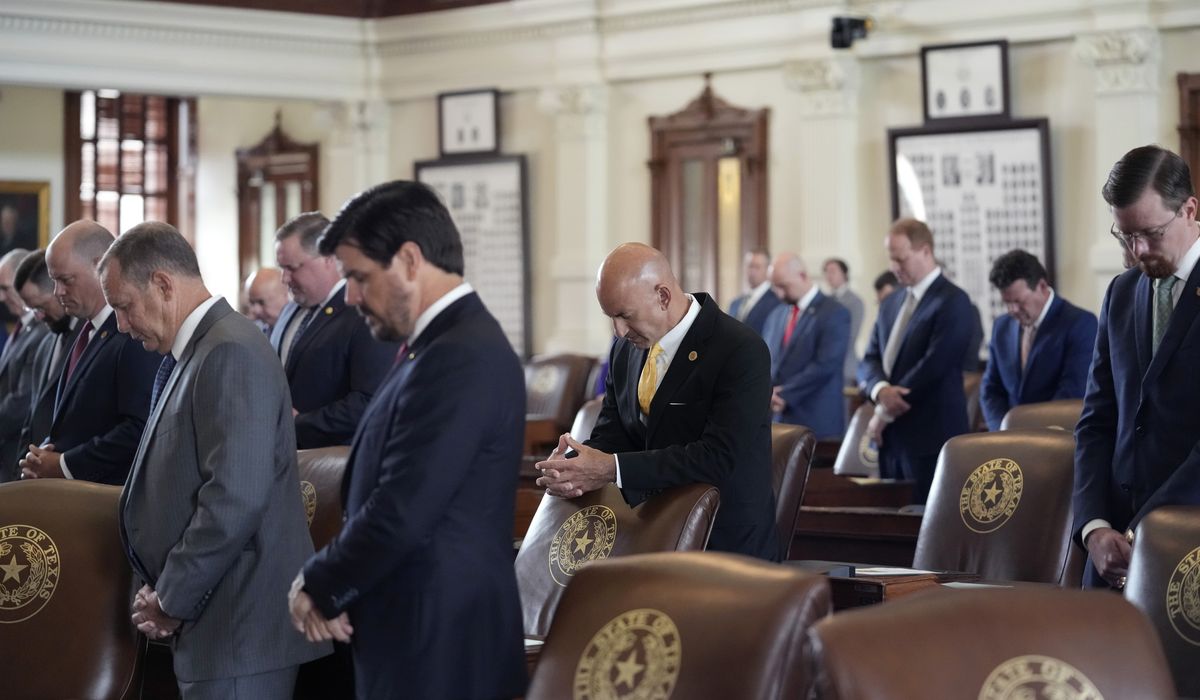A justice of the peace in Montgomery County, Texas, can continue opening sessions with prayers from volunteer chaplains while a lawsuit by an atheist group proceeds in federal court, a Fifth Circuit judge has ordered.
Judge Wayne Mack, who is both a justice of the peace and the county coroner in Montgomery County, regularly recognizes a volunteer chaplain before proceedings in his courtroom. Conroe, the county seat, is approximately 40 miles north of Houston.
The chaplains — Protestant, Catholic, Buddhist, Hindu, Jewish and Islamic — offer either “encouraging words” or a prayer.
A bailiff then leads the courtroom in the Pledge of Allegiance, documents indicate. Participation in both elements is voluntary, and those in the courtroom are told by the bailiff they can exit to be called back when the court is in session.
Despite these safeguards, the Wisconsin-based Freedom From Religion Foundation, or FFRF, filed a complaint in 2014 against Judge Mack. Ultimately, the FFRF sued the judge in his personal capacity, claiming the ceremony “flies in the face of historical tradition, and makes a mockery of both religion and law.”
In the stay, Fifth Circuit Judge Andrew Oldham, a Trump appointee, stated Judge Mack “has made a strong showing that the district court erred” in siding with Freedom From Religion Foundation in its lawsuit against the judge.
The decision noted the plaintiffs’ arguments were not likely to succeed at trial. “As to FFRF’s individual-capacity claim, that too is likely to fail. The Supreme Court has held that our Nation’s history and tradition allow legislatures to use tax dollars to pay for chaplains who perform sectarian prayers before sessions. If anything, Judge Mack‘s chaplaincy program raises fewer questions under the Establishment Clause because it uses zero tax dollars and operates on a volunteer basis.”
The stay also noted a rich legal history of Supreme Court sessions opening with a religious invocation — “God save this Honorable Court” — and suggested such a precedent would support Judge Mack‘s claims.
Judge Mack is represented by First Liberty Institute, a public-interest nonprofit based near Dallas. Justin Butterfield, the group’s deputy general counsel said in a statement, “We agree with the Fifth Circuit’s conclusion that prohibiting the prayers was wrong. It’s time for the Freedom From Religion Foundation and the State Commission on Judicial Conduct to end their harassment of Judge Mack.”
For his part, Judge Mack stated, “I am so very grateful that we have our chaplaincy program in place to assist with helping families in our county through terrible tragedies and to provide a moment of perspective as our court begins proceedings. I am pleased that this program can continue while we are presenting our case to the Fifth Circuit.”
Annie Laurie Gaylor, co-president of the FFRF, told The Washington Times the group had not yet formulated a statement on the case.



















